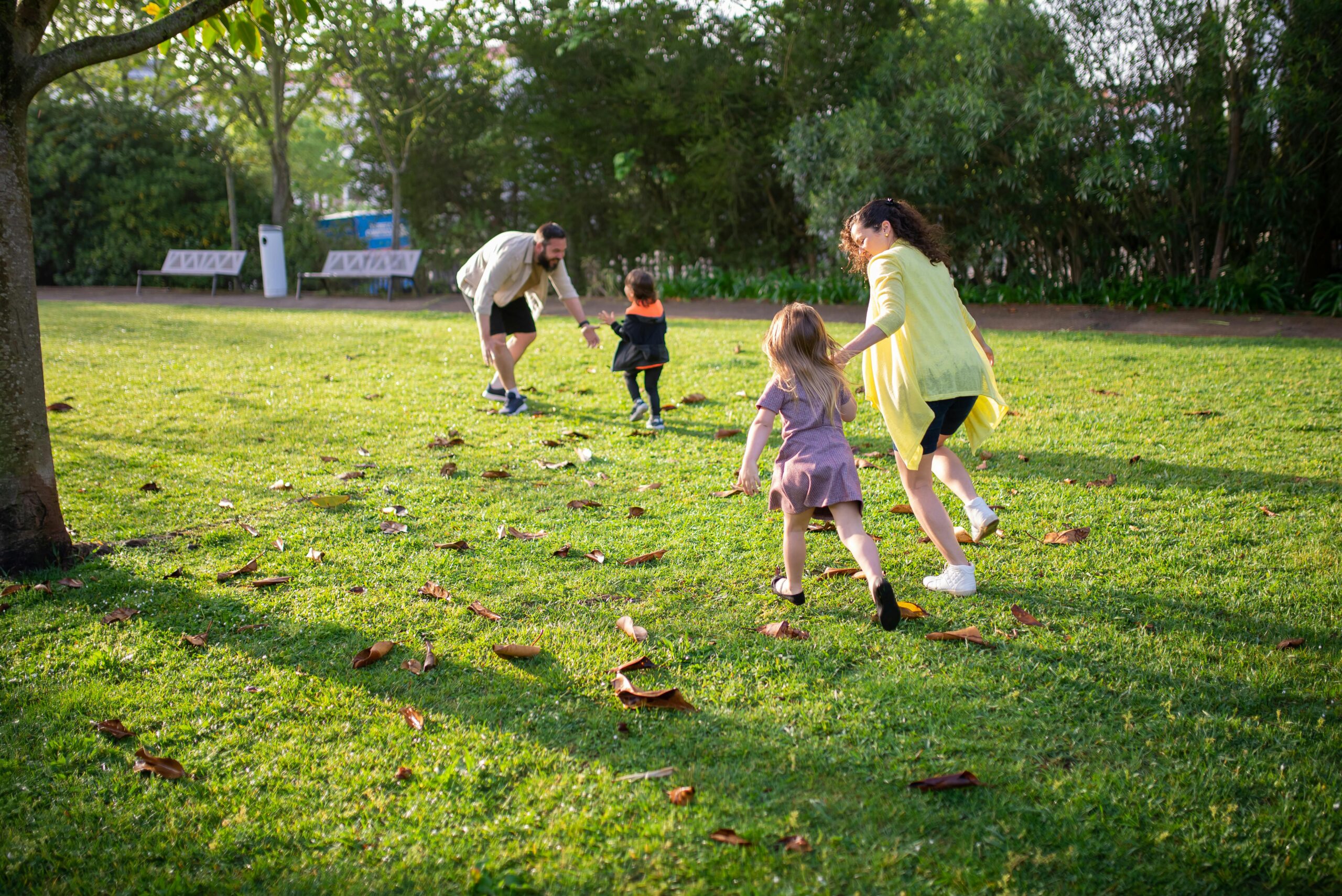
The Weekend Tradition That Saved Our Sanity
The Weekend Tradition That Saved Our Sanity
It was a Sunday evening, and I was staring at the wreckage of another chaotic weekend. The kitchen looked like a crime scene starring cereal boxes and juice spills. My kids had fought over screen time approximately seventeen times. My partner and I had barely exchanged more than logistical updates (“Did you feed the dog?” “Where are the car keys?”). And somehow, despite having two full days “off,” I felt more depleted than I did after a week of work.
Sound familiar? Here’s what nobody tells you about modern family life: weekends have become the second shift. Between birthday parties, grocery runs, laundry mountains, and trying to squeeze in “quality time,” we’ve turned our recovery days into an exhausting performance of productivity. And our families — especially our kids — can feel it.
That’s when my own family stumbled onto something that changed everything. Not a fancy parenting hack or an expensive family activity. Just a simple, repeatable tradition that brought us back to each other. Let me show you how the weekend tradition that saved our sanity might work for your family too.
Why Weekends Feel Like Survival Mode (And Why That Matters)
Before we talk solutions, let’s understand what’s really happening. When families feel disconnected and overwhelmed on weekends, it’s not a personal failing — it’s a predictable response to what psychologists call “role overload” combined with the collapse of shared rituals.
Think about it: previous generations had built-in family rhythms — Sunday dinners, religious services, neighborhood gatherings. These weren’t just “nice to have” activities; they were attachment anchors that helped family members feel safe, connected, and oriented in their relationships. When life gets busy and these rituals disappear, our nervous systems actually register the loss as a form of instability.
You’re not imagining the exhaustion. According to the American Psychological Association, nearly 48% of parents report that they feel completely overwhelmed by their responsibilities, with weekends offering little actual rest or emotional replenishment. It’s not laziness; it’s what happens when we’re constantly doing but never truly connecting.
Our children feel this disconnection acutely. Kids don’t just want our time — they want our presence. When weekends become a blur of errands and entertainment, children often act out, cling more, or withdraw. It’s not misbehavior; it’s communication. They’re saying: “I need to know we’re okay. I need to know you see me.”
The Power of One Predictable, Protected Ritual
Here’s what changed everything for us, and for many families I’ve worked with: we stopped trying to make weekends perfect and started making them predictable. We created one simple tradition — ours was “Saturday Morning Pancake Parliament” — where everyone gathered, phones went in a basket, and we had one protected hour together.
Was it fancy? Absolutely not. Did my kids sometimes complain? Of course (tiny humans armed with opinions are gonna tiny human). But over time, something remarkable happened: this single tradition became an anchor point. It gave our weekend shape. It gave our family identity. It gave everyone — especially the kids — a sense of safety and belonging.
Let me share the tools that make this work, so you can build your own version:
5 Tools for Creating Your Family’s Weekend Anchor
Tool #1: Make It Predictable
Choose the same day, same time, same basic structure. Predictability isn’t boring to children — it’s soothing. Their nervous systems relax when they know what’s coming. You might do Sunday breakfast together, Friday pizza night, or Saturday morning nature walks. The activity matters less than the consistency.
Tool #2: Keep It Simple
This isn’t about Instagram-worthy moments. It’s about repeatable connection. If your tradition requires two hours of prep or special ingredients you never have, it won’t last. Think: making toast together, playing one favorite card game, or sharing “highs and lows” from the week over hot chocolate.
Tool #3: Build in Voice and Choice
Let kids have some ownership. Maybe they choose the pancake toppings, pick the hiking trail, or decide which family game gets played. When children have appropriate power within the structure, they’re far more invested. You’re not giving up authority — you’re sharing it wisely.
Tool #4: Protect It Fiercely
Here’s where many families stumble: they let the tradition get bumped by “more important” things. But here’s the truth — connection is the important thing. Unless there’s a genuine emergency, protect this time like you’d protect a doctor’s appointment. Your family’s emotional health depends on it just as much.
Tool #5: Name It and Celebrate It
Give your tradition a fun name. Talk about it during the week (“Only two more days until Waffle Wednesday!”). Take photos sometimes. Let it become part of your family’s story. This isn’t silly — it’s identity-building. Kids develop a sense of belonging when they can say, “In our family, we do this special thing.”
| Tool | What It Does | How to Try It |
|---|---|---|
| Predictable Timing | Creates emotional safety and anticipation | Pick the same day and time each week — add it to your calendar like any important appointment |
| Simple Structure | Makes the tradition sustainable long-term | Choose an activity that requires minimal prep and can happen even on “off” weeks |
| Voice and Choice | Increases buy-in and teaches healthy autonomy | Let kids make age-appropriate decisions within the tradition (toppings, games, topics) |
| Fierce Protection | Signals that family connection is a priority | Say “no” to conflicts unless truly urgent — model that relationships matter most |
| Naming & Celebrating | Builds family identity and positive memories | Create a fun name, reference it during the week, and occasionally capture the moment |
Your Family’s Version Will Be Perfect Because It’s Yours
Maybe your tradition won’t involve pancakes. Maybe it’s a Sunday afternoon walk where everyone shares one thing they’re grateful for. Maybe it’s Friday night movie marathons with a rotating “picker.” Maybe it’s making Sunday dinner together, even if that means sandwiches some weeks.
The magic isn’t in what you do. It’s in the doing it together, again and again, until it becomes part of who you are as a family. Until your kids know, deep in their bones, that no matter how chaotic life gets, this moment is protected. You show up. You’re together. You’re home.
You’ve Got This
Listen — you’ve already taken the hardest step by caring enough to look for solutions. The weekend tradition that saved our sanity wasn’t about becoming perfect parents or having picture-perfect moments. It was about creating one small island of connection in the chaos, and then protecting it like it mattered. Because it does.
Pick one small tradition to try this weekend. Just one. Keep it simple, make it yours, and watch what happens when your family has something steady to hold onto. You’ll be amazed how even small moments of connection can change everything — not just for your kids, but for you too.



